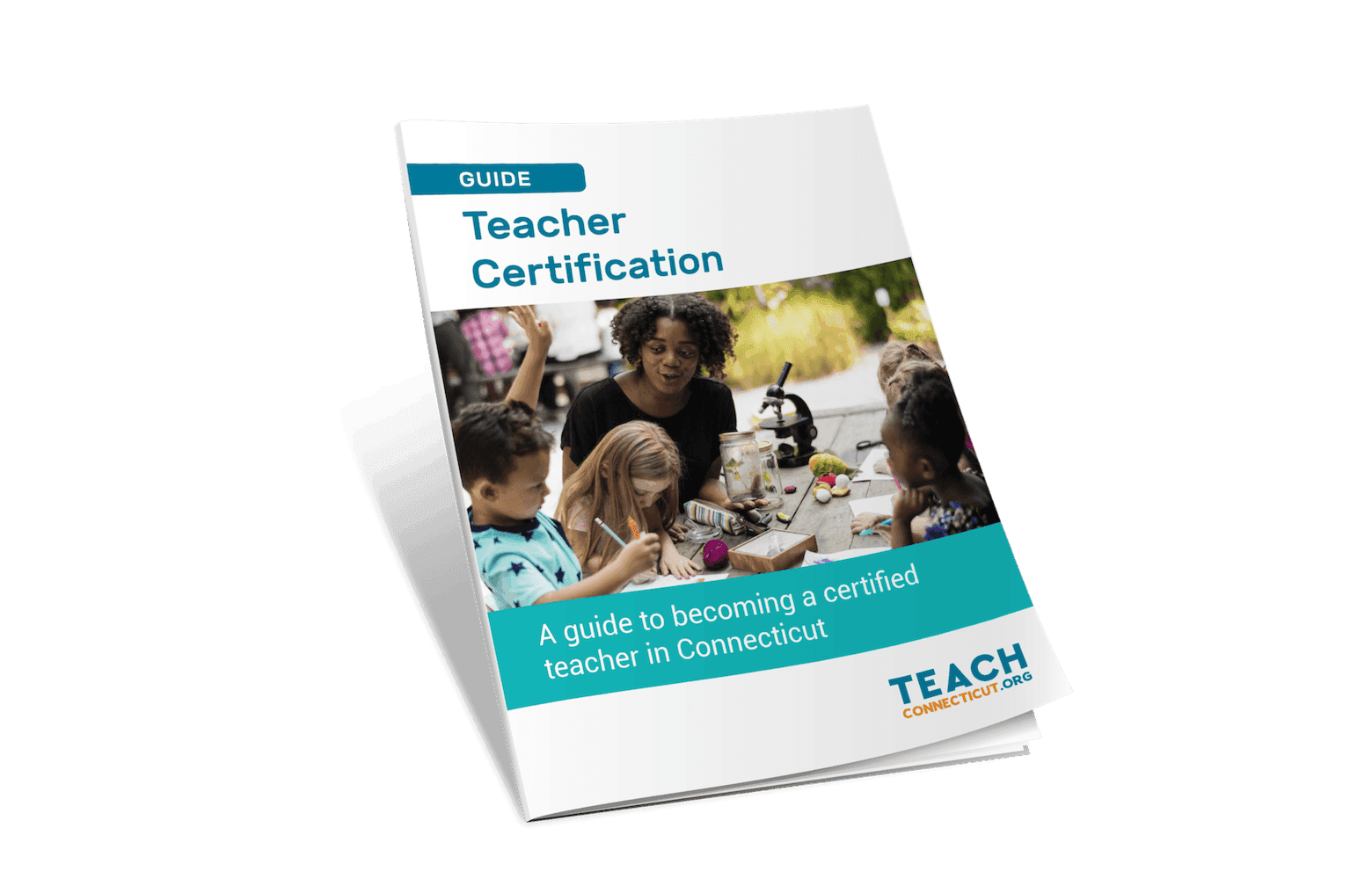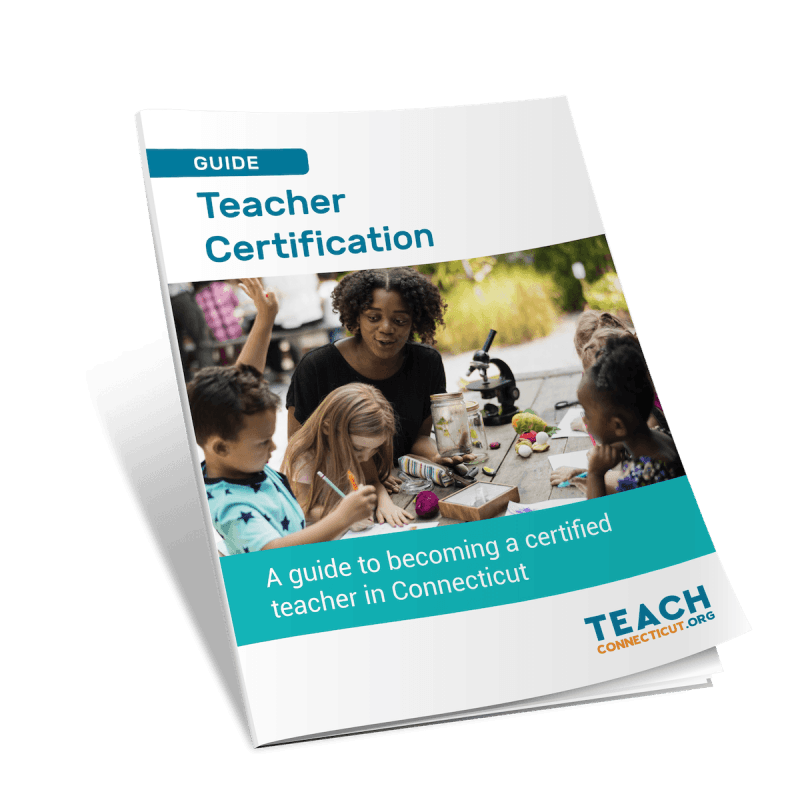Pathways to Teaching
Your path to teaching will partly depend on your background. Get an overview here, and download our free guide for more details!
Select the tab that fits you best.
"Schools are more than just places where students learn how to read and write — they're communities. They're like second families to our students." — Dr. Miguel Cardona, U.S. Secretary of Education
Get Your Connecticut Teacher Certification
- 1
Decide what you want to teach
When you enroll in a teaching program, you'll need to know the subject and grade level you want to teach. These will determine your certification endorsement area.
Getting certified in a shortage area can provide more opportunities and even higher pay!
- 2
Apply to teaching programs
Make sure to look for programs that offer the endorsement subject area you want!
If you don't have a bachelor's degree, many programs combine teacher certification with undergraduate coursework, so you can get certified and earn a degree at the same time.
If you already have a bachelor's, you'll look for either master's degree + certification or certification-only programs. If your degree is in a subject other than the one you want to teach, you may also need to take a few additional classes before you begin. Check your program’s coursework requirements!
Connecticut requires all teachers to eventually earn a master’s degree. That said, certification-only programs are typically faster than master’s programs—so you can choose to earn your teaching certificate first, and get your master’s later.
- 3
Enroll in and complete your teaching program
Connecticut accepts degrees from a large number of colleges and universities, but you should confirm yours is regionally accredited.
Explore Connecticut teaching programs.
TEACH Connecticut can help you save money on teaching program applications! We’ll reimburse up to $100 for any expenses required for you to apply to a teaching program (like application fees, transcript fees and more). Get $100 back.
- 4
Pass required tests
You’ll have to take a subject matter test, to show you know your stuff well enough to teach it.
When do you take the test? It depends on your program. Different programs will have you take your exam at different times — often toward the end of your program, but not always.
Our Testing Guide covers everything from how to register to study tips and resources.
- 5
Apply for your teacher certification
Almost there! Your teaching program must formally recommend you for certification before you apply for your teacher certification from the state.
To apply, you'll create an online account with the Connecticut Educator Certification System to pay fees and submit paperwork.
Get the Guide

The TEACH Connecticut Certification Guide has everything you need to start your journey: Get details about teaching pathways, endorsement areas and steps to certification, all in one place.
It’s all free.
Frequently Asked Questions
What’s next
Connecticut Program Explorer
Ready to explore teaching programs? Find the right fit with our Program Explorer! Filter by degree, online options, tuition costs and more. You can even save favorites to revisit later.
Explore ProgramsCareer Coaching in Connecticut
Have questions about becoming a certified CT teacher? Talk to an expert. Attend a group info session or get 1-on-1 advice on what to teach and how to choose and apply to the right program. It's all free.
Read MoreConnecticut Guides
Applying to teaching programs or jobs? TEACH Connecticut can help, with step-by-step advice and downloadable templates. From resumes to recommendations, test prep to financial aid, we'll tell you everything you need to know to apply with confidence.
Read MoreReferences
- What are the fees for teacher certificates and coaching permits? Connecticut Bureau of Certification. https://portal.ct.gov/sdecertification/knowledge-base/articles/resources/general-information/certification-fees?language=en_US
- Connecticut Required Tests. Praxis, ETS. https://praxis.ets.org/state-requirements/connecticut-tests.html
-
“Teacher Pay and Spending: How Does Your State Rank?” National Education Association.
April 29, 2025. https://www.nea.org/resource-library/educator-pay-and-student-spending-how-does-your-state-rank
Sign Up for Free Resources
Enter your email to get FREE resources for future Connecticut teachers—from tailored advising to funding opportunities and more. Already signed up? Sign in at the top of the page to access your dashboard.
